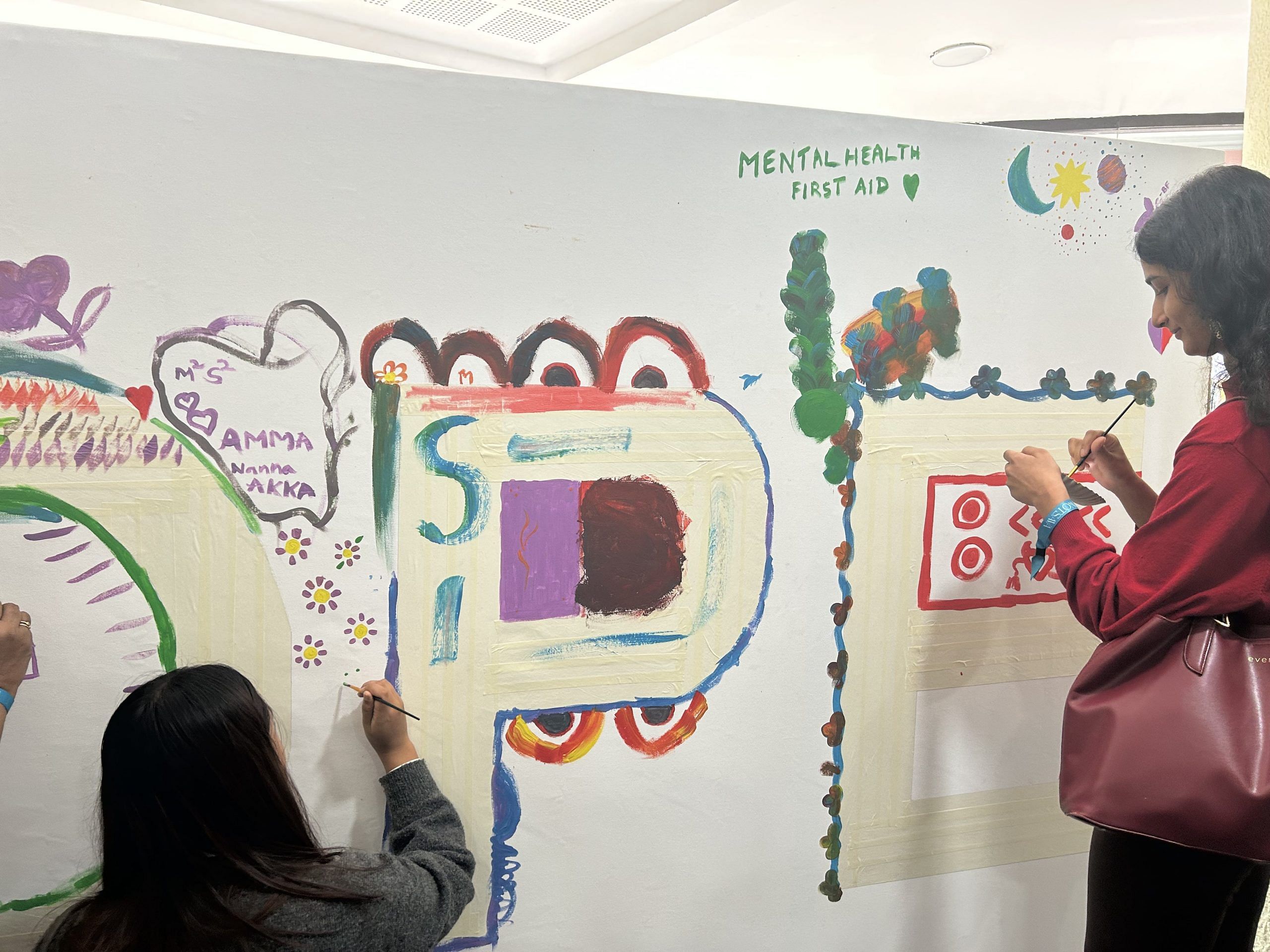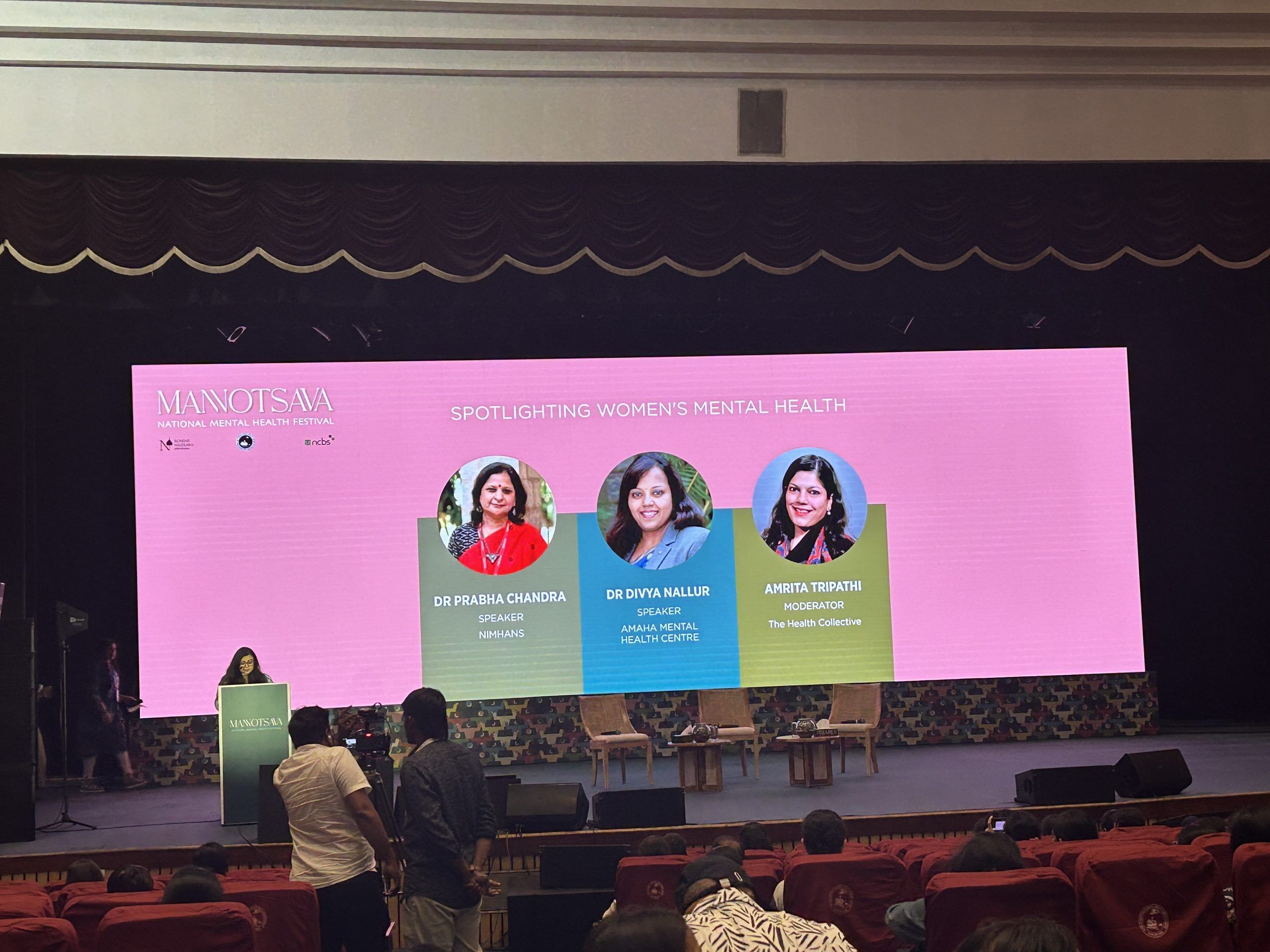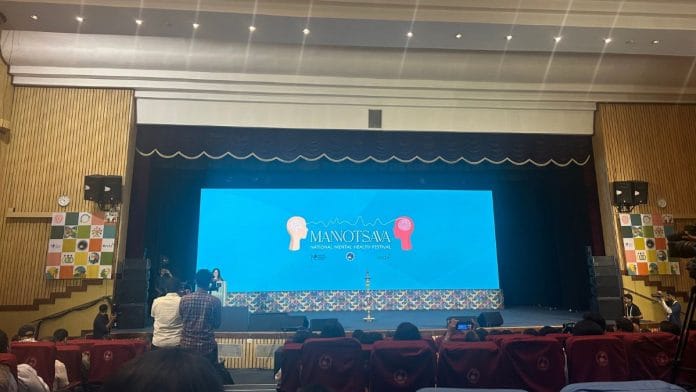Bengaluru: A 23-year-old college student opened up about her pain of loneliness while dealing with depression. Rahul Dravid spoke about the “incredible lows” in his cricketing journey and how they shaped his career. Mannotsava, India’s first National Mental Health Festival held in Bengaluru on 26 and 27 October, saw regular people and celebrities, counsellors and psychiatrists, scientists and professors talk about mental health.
“Such spaces make me feel like I am not alone and that my illness doesn’t define who I am,” the student said.
But Mannotsava was more than just a safe space. With more than 105 speakers, stalls, workshops, and panel discussions, it aimed to bridge the gap between science and society, wellness and illness. It was co-hosted by Rohini Nilekani Philanthropies, the National Institute of Mental Health and Neurosciences (NIMHANS), and the National Centre for Biological Sciences (NCBS).
Professor of psychiatry and former head of NIMHANS Dr Prabha S Chandra and visiting scientist at the Banyan Academy of Leadership in Mental Health Nachiket Mor were among the speakers who destigmatise varied diseases and disorders like ADHD, depression, anxiety, addiction, and suicide. It was a marked departure from the usual hushed conversations in society around mental health issues.
“By the time those who need help reach spaces like NIMHANS, it might be too late already. We need more open conversations about mental health so that those coping with stress, living in poverty, and facing traumatic experiences can ask for support without any judgement. These are the ones who are at most risk,” said Dr Chandra.
For many, the event was the first step toward seeking help, breaking isolation, and building a supportive community.
“Following the pandemic, mental health has emerged as a topic that needs a lot more discussion. But we don’t have many public platforms that bring together experts, civil society, researchers, and artists for such a dialogue. Mannotsava endeavours to be such a platform,” said Rohini Nilekani, Chairperson, Rohini Nilekani Philanthropies, while inaugurating the festival on Saturday.
By the end of the day, the college student had a list of suggestions from experts on how to battle loneliness in a big city like Bengaluru. There was one that her introverted self liked the best: “Go to a local park that hosts collective reading sessions. Bring your own book, read. There’s no need to interact with anyone else.”

Women’s mental health
Young women are not expected to protest. They are encouraged to be nurturing, calm, and available to everyone at all times. So when journalist and author Amrita Tripathi asked the audience whether they had been called hysterical or different when they revealed their anxiety or depression, all the women raised their hands—girls, mothers, and senior citizens.
Tripathi was moderating a session on ‘Spotlighting Women’s Mental Health’.
“I have seen many young married women between the ages of 23 and 25 come into my clinic with extreme amounts of stress. They are completely being removed from their familiar areas and relocated into a new environment. And the myth is that they are not expected to protest or be sad or even be anxious,” said Dr Chandra in conversation with psychiatrist Dr Divya Nallur.
Young women are at a higher risk of developing mental health issues in comparison to men of similar age. The panellists agreed that a combination of social, biological, and psychological factors push women toward such danger zones.
“We have always been taught to think about others’ emotions at the cost of our own. We are made to feel guilty if we don’t do that. These social pressures coupled with patriarchy create a public bath for mental illness to be nurtured in women,” said Dr Nallur.
When women eventually reach out for help – often well after the onset of symptoms – they are frequently met with ‘medical gaslighting’ in hospitals.
“They are dismissed with a much-used phrase – it is all in your head. Such lack of support from all ends at a vulnerable time exacerbates their mental illness,” she added.

A mother in the audience, caring for her autistic child, asked how she could find support for her mental health when immediate medical resources aren’t accessible.
One suggestion from the panellists was to seek comfort in other women who are facing a similar ordeal. “Find solidarity in other women around you. Female friends, colleagues, and family members. There is nothing better than looking out for each other,” said Dr Nallur.
Also read: Saris, kumkum, gossip—Women are central to Thota Vaikuntam’s art
Prevention and early intervention
Across multiple panel discussions held during the two-day festival, psychiatrists called for early intervention and support mechanisms in homes, schools and workplaces.
“At least 70 per cent of the mental health disease burden can be reduced with public health interventions in these important venues,” said Nachiket Mor, during a panel discussion titled ‘Prevention is better than cure’.
Detailing some basic preventive measures, Mor said workplaces should not put their employees in high-stress environments where they don’t thrive.
“We are increasingly seeing situations where employers will recruit somebody, then throw them in the deep end and say sink or swim. That may not be the best way to produce a high-performance organisation,” said Mor, who assists with the design of national and regional health systems.
He also criticised how schools are immediately enrolling children into coaching programmes while they are still in the early phases of schooling.
“Often such schools wonder why their students are turning up with mental illnesses by the end of the course. It’s because they were not provided with enough play and artwork for their brains to adjust to all the dimensions of childhood,” Mor added.
Outside the auditorium, visitors painted their feelings on a big white canvas. Some drew flowers, others drew smiley face emojis. Some signed their name, along with phone numbers, asking people struggling with mental health issues to reach out in case they needed to talk.
One person left a note for those who had attempted to die by suicide. “Mustering the courage to fight is a brave and bold step. I hope you smile in every step of your life,” read the note.
(Edited by Aamaan Alam Khan)






